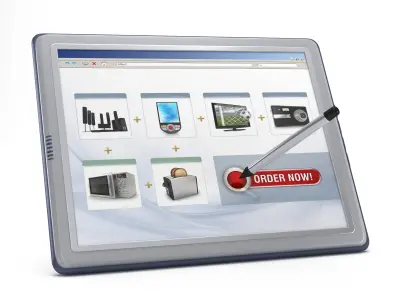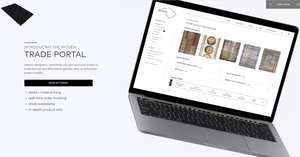
If your company conducts business online through an eCommerce application, and that eCommerce system runs independently of your other internal business-management software (for accounting, ERP, fulfillment, etc.), odds are very good that your organization is wasting a lot of time and money. Today, smart businesses recognize that integrating their online eCommerce systems with their internal operating software dramatically improves administrative efficiency and reduces costs.
Many business owners and managers may, however, hesitate to link these distinct systems together for fear of complication, confusion, or data loss. But, today such fears are unwarranted. Enterprises using “third party” software systems to manage their operations (like QuickBooks, Intuit’s accounting and financial-management suite) can and should secure the integration of data between their internal and eCommerce operating systems, for doing so is now possible and highly reliable with the right integration tools.
Of course, the interface between the online eCommerceplatform (engine) and the 3rd party enterprise software is critical, and it must be seamless, which means trouble free. Nobody wants more trouble managing their data than they already have. The eCommerce back end must work hand-in-hand with the enterprise management software to create a “unified operating environment.” The reliability of this interface is essential to operational efficiency and cost control. When done right, the efficiencies gained are impressive.
To ensure the integrity and reliability of this integration process, Adrecom has developed a superior suite of tools designed to effectively integrate and synchronize eCommerce and 3rd party systems, and permit them to interact in real time as data is generated through the eCommerce interface. Adrecom’s eCommerce system has pre-built tools for EDI (electronic data interchange) that facilitate the interaction process between the online “back end” and internal accounting software like QuickBooks and PeachTree.. Such tools are very important for automating the synchronization of data between systems.
These tools permit server-to-server communication in which one server requests data, the other server sends the data, and the data is appropriately modified for the desired integration. This data-exchange process is automated and occurs in real time. So, if your enterprise is running QuickBooks, that QB system is updated as sales occur online, 24/7. As products are sold and payments received, internal accounting and management systems are automatically updated. Data flows directly out of the eCommerce system directly into the internal system without any human intervention, and with little or no delay. There is no need to manually extract data from the online eCommerce system and plug it in to the company’s accounting software. The integration extends to:
- All order information.
- All customer information.
- All product information.
- All inventory information.
Benefits of Integration – You can optimize your online business efficiency by integrating your eCommerce system with your internal management software.
- Reduce Time – eliminate hours manually entering data.
- Reduce Errors – no more data entry errors.
- Reduce Costs – increase ROI within the 1st month.
- Security – You are far less likely to lose information transmitted through EDI than information transmitted by email. Moreover, only authorized users can access EDI, and EDI leaves reviewable audit trails and data archives. EDI data is not exposed to viruses and can’t easily changed by unauthorized users.
- Faster buy-sell cycle time.
- Faster cash flow.
- Reduced order lead time.
- Reduced inventories.
- Improved just-in-time manufacturing capabilities.
- Improved trading-partner relationships.
Successful use of Adrecom’s data-integration tools requires considerable expertise, and Adrecom’s experts stand ready to assist those companies who lack the in-house resources to conduct integrations on their own. Using the right tools to accomplish the task, you’ll succeed, and your organization will reap great rewards.




